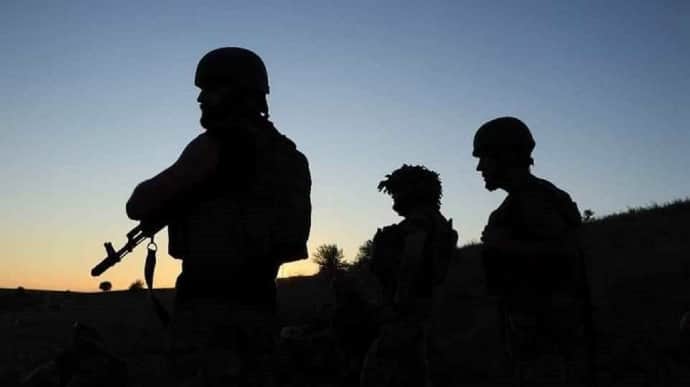Russia resorts to periodic impulsive attacks because of its limited capabilities – ISW

Analysts at the Institute for the Study of War (ISW) have noted that due to the lack of capacity for a large-scale offensive in Ukraine, the Russian command resorts to periodic impulsive mechanised attacks that are costly for both the Russian forces and the Ukrainian defence forces.
Source: ISW
Details: Russian forces carried out five mechanised attacks, ranging from platoon to battalion size, in western Donetsk Oblast on 29 and 30 July. Analysts noted that these localised mechanised offensives likely reflect a projected Russian summer offensive. However, it is probable that Russian forces lack the broader operational capacity to launch a separate, renewed offensive in Donetsk Oblast or elsewhere along the front line this summer.
Quote: "ISW previously assessed that Russian forces are likely attempting to seize Kostiantynivka and cut the Vuhledar-Kostiantynivka T-0524 highway, forcing Ukrainians to retreat from the area."
Details: The ISW has previously highlighted that Russian forces have struggled with conducting simultaneous large-scale offensives throughout the full-scale war, often resorting to staggered offensive operations across different front sectors. This approach involves decreasing activity on one front while increasing it on another. Throughout the summer, Russian troops have periodically launched platoon and company-sized mechanised assaults on the Lyman, Chasiv Yar, and Avdiivka fronts in Donetsk Oblast, with a recent uptick in attacks to the west and southwest of the city of Donetsk.
The Russian military command may perceive these intermittent mechanised assaults as sufficient to meet their revised, more modest goals for the summer of 2024, or as reflecting the current limitations of their forces. The command could be aiming to present these limited tactical gains, such as the potential severing of the Vuhledar-Kostiantynivka highway, as a significant victory to Russians, despite the general lack of public familiarity with this region.
Additionally, the command might be driving the already depleted Russian forces in this area to push forward as far as possible before their combat effectiveness diminishes, regardless of the heavy losses sustained. The Russian military's apparent readiness to incur substantial armoured vehicle losses without achieving operationally significant advances or launching a large-scale, multi-directional offensive in western Donetsk Oblast is likely to strain its military capabilities in the long run.
Quote: "The cost of this approach will continue to be high if the Russian military command continues to fail to internalise lessons learned about the difficulties of mechanised manoeuvre on a nearly transparent battlefield in Ukraine and if the Russian government remains averse to further mobilising the Russian defence industry."
More details: Analysts also pointed out that Russia's ongoing offensive operations are also costly for Ukraine's defenders and are likely to deteriorate Ukrainian capabilities through attrition, whether they achieve significant success or not.
Quote: "This attritional approach is consistent with Putin's overall strategy for Ukraine that relies on the assumption that Russia will be able to hold any ground Russian forces take and that Russia will win by outlasting Western support for Ukraine."
To quote the ISW’s Key Takeaways on 30 July:
- Russian forces conducted five platoon- to battalion-sized mechanised assaults in western Donetsk Oblast on 29 and 30 July. Such localised mechanised pushes are likely the manifestation of Russia's forecasted summer offensive – Russian forces likely lack the wider operational capacity to mount a separate renewed offensive operation in Donetsk Oblast or elsewhere on the front this summer.
- The Russian military command's willingness to accept costly armoured vehicle losses without conducting a large-scale, multi-directional offensive operation or making operationally significant advances in western Donetsk Oblast will likely burden the Russian military in the long-term. The ongoing Russian offensive operations are also costly for Ukrainian defenders and are likely meant to degrade Ukrainian capabilities through attrition whether or not they gain much ground.
- North Korea may be expanding the volume and variety of weapons it is providing to Russia.
- The Kremlin is likely attempting to corral Russian information space actors onto social media sites that the Kremlin can more directly influence to directly control their rhetoric, prompting some backlash from Russian ultranationalist milbloggers and opposition journalists.
- Ukrainian forces struck a Russian oil depot in Vozy, Kursk Oblast, on the night of 29-30 July.
- The Russian government continues to support educational programmes on "information and hybrid warfare" aimed at training Russians to conduct and counter information operations, use open-source research methodology, and to effectively analyse and counter hybrid threats for the Kremlin.
- Russian officials and Russian Orthodox Church (ROC) representatives are advocating for the Kremlin to codify a state ideology premised on the idea that the sovereign Ukrainian state should not exist, into Russian federal law.
- Russian forces recently advanced near Chasiv Yar and southwest of Donetsk City.
- Authorities in St. Petersburg have joined other Russian regional authorities in increasing financial incentives for recruits to sign military service contracts.
- UK newspaper The Times published a story on 29 July detailing how Russian authorities are indoctrinating deported Ukrainian children through military-patriotic education programmes.
Support UP or become our patron!






